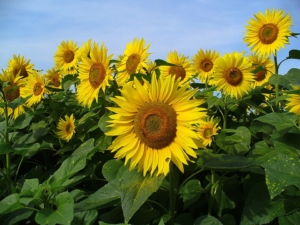
2:1 for new genomic techniques
Following the AGRI Committee of the European Parliament, the lead ENVI Committee has also agreed to relax the rules for the authorisation of NGTs.
At the end of December, genetic engineering sceptics celebrated that the Council of Agriculture Ministers narrowly failed to reach a qualified majority (15 Member States that represent 65%) of the EU (in fact 15 states representing only 57.59% voted with yes ) for the draft regulation on new genomic techniques in plant breeding presented by the European Commission in July. Now, they have suffered a double setback.
First, the AGRI Committee of the European supported the draft regulation in parallel to the vote in the Agriculture Council in mid-December, but, like many Member States, called for a ban on the patenting of NGT1 plants in order to prevent seed monopolies. Second, the lead ENVI Committee yesterday also approved the draft regulation with 47 votes in favour, 31 against and 4 abstentions.
Members from the European People’s Party (EPP), the Renewal Party, the European Conservatives and Reformists (ECR) and the Party for Identity and Democracy (ID) supported the draft report by rapporteur Jessica Polfjärd (EPP) with certain amendments. This does not provide for mandatory labeling of NGT-1 varieties whose equivalence to conventional varieties has been proven by the authorities of the Member States. Both committees therefore recommend that the European Parliament vote in favour at the beginning of February.
ENVI-MEPs supported the Commission’s proposal to treat two categories of NGT breeds differently in legal terms. While NGT-1 plants (96% of NGT plants in development) that prove to be equivalent to conventional breeds will be exempted from the labeling, traceability and safety assessment for GMOs, NGT2 plants will be subject to strict safety checks similar to those under the current legislation for GMOs and will be subject to labeling and traceability requirements. The ENVI Committee also agreed to the AGRI Committee’s proposal to include a complete ban on the patenting of NGT seeds in the regulation and to have its consequences examined by 2025. The proposal not to ban NGTs in organic farming was rejected.
After the vote, rapporteur Jessica Polfjärd (EPP, SE) said: This proposal is critical for strengthening Europe’s food safety in a sustainable manner. We finally have a chance to implement rules that embrace innovation and I look forward to concluding negotiations in the Parliament and with the Council as soon as possible.
The European Parliament will now vote on the modified Commission proposal in the second week of February. It will then be up to the agriculture ministers to vote on the modified draft regulation. At the meeting of agriculture ministers in January before the vote in the ENVI Committee, Belgian Agriculture Minister David Clarinval held bilateral talks to persuade the new Polish Agriculture Minister Czes?aw Siekierski to vote in favor. Poland had previously criticised the lack of a ban on patenting. However, this is viewed critically by the Commission, as it threatens to drive companies away from Europe to locations with different patenting practices. If Clarinval succeeds in this coup, it would achieve the necessary qualified majority in the Council of Ministers before the European elections in May.
Environmental organisations, which had spoken out against any NGT liberalisation in order to protect the organic sector, were accordingly appalled that their anti-NGT campaigns, supported by the European Greens, parts of the Social Democrats and consumer organisations, appear to have come to nothing at a political level. The regulation is far from being fair to all interest groups.
Although all NGT seeds should be publicly searchable in a database, a cultivation register based on the German model, which would show where which seeds are sown and potentially affect the organic status of organic farmers’ food, was not even discussed.Similarly, the equivalence criterion that up to 20 changes may be made to the genome of NGT1 plants per breeding was not touched. The regulations of all other countries worldwide only allow one single targeted modification per breeding after a case-by-case assessment. No solution has been found to the problem of organic farmers being able to safely avoid NGT admixtures in their products, which are inadmissible for them, but only legally defined away by accepting the equivalence criteria. Therefore, the Commission proposal, although scientifically substantiated according to the current state of knowledge (a conventional breeding has up to 1,000 arbitrary changes in the genome), does not pacify the ideal conflict between seed developers, plant researchers and organic farmers and the consumers of the products labeled by them as GMO-free or organic. In Europe, however, no genetically modified plants have so far been processed into foodstuffs, but only marketed as animal feed. Vitamins, food enzymes and flavourings produced with transgenic production strains for decades have long been consume without requiring labelling because the end product does not contain any transgenic DNA.
It will be interesting to see how the struggle for a compromise solution continues.


 H. Zell - wikipedia.org
H. Zell - wikipedia.org fvm.dk
fvm.dk adobe stock photos - Sergii Figurnyi
adobe stock photos - Sergii Figurnyi